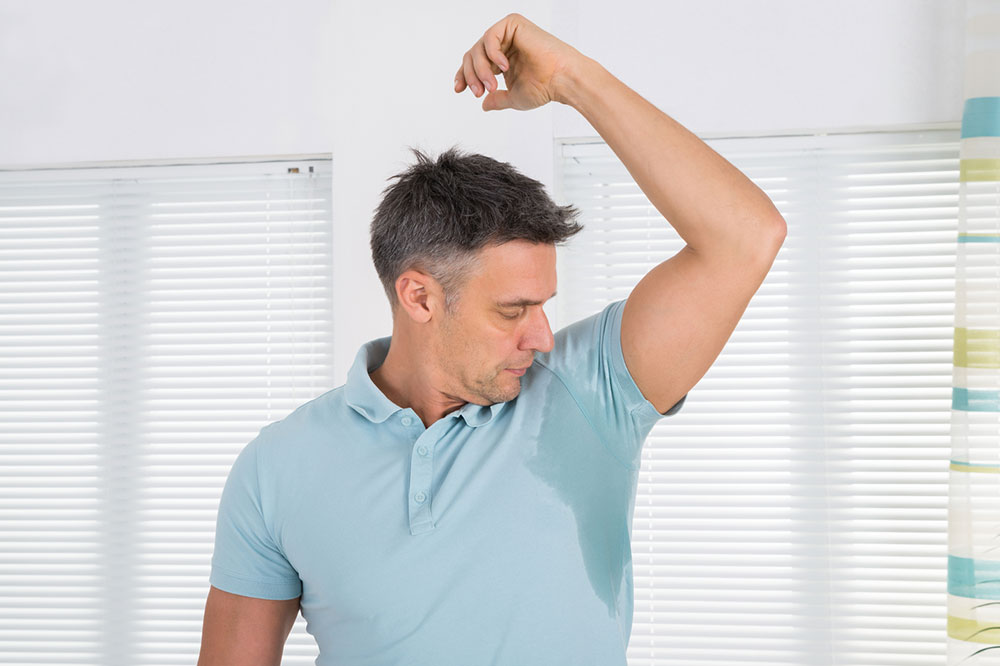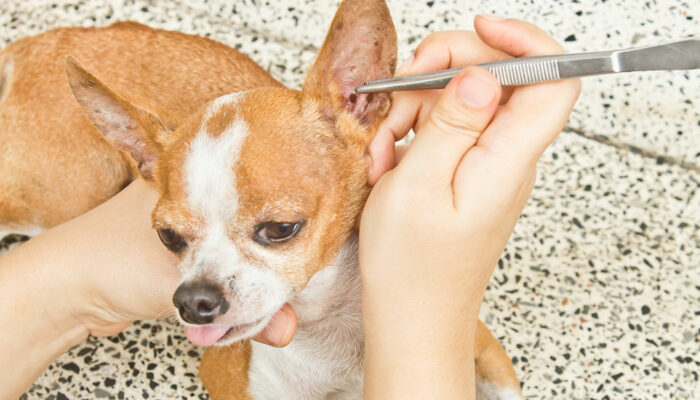
The Triggers of Primary and Secondary Hyperhidrosis
Have you ever broken into a massive sweat after biting into something spicy? Imagine being like that continuously. It is a medical condition called hyperhidrosis, which makes a person sweat excessively. In some cases, the affected person sweats through their clothes as well. It can affect either one part or the entire body. The sweat could be caused by rising temperature in the body, or emotions like stress, fear, and anxiety could cause sweat.
In simple terms, the sweat glands do not stop producing sweat even after the body temperature is back to normal. If you are having an anxiety attack, the sweat glands do not shut off even after stress, fear, or anxiety passes.
Types of hyperhidrosis and their triggers:
Primary hyperhidrosis
Primary or localized hyperhidrosis causes excessive sweating without any reason. It usually affects the hands, armpits, face, and feet. Mostly, 90% of those diagnosed with hyperhidrosis have primary hyperhidrosis.
Triggers of primary hyperhidrosis
Those diagnosed with primary hyperhidrosis sweat due to a type of sweat glands called eccrine sweat glands. Millions of eccrine glands are found in our hands, armpits, face, and feet. Their bodies get overheated, and the temperature rises when they are active, mobile, or when they are feeling emotional. The hormones activate the nerves, which, in turn, activate the sweat glands. Excessive sweating happens in the hands, armpits, face, and feet when the nerves overreact. All they have to do is think of an unpleasant or stressful situation, and they will break into an uncontrollable sweat. Primary hyperhidrosis could also be a hereditary condition.
Secondary hyperhidrosis
Secondary or generalized hyperhidrosis can affect the entire body or a larger area. When an underlying medical condition or a side effect of medication causes hyperhidrosis, it is classified as secondary or generalized hyperhidrosis. Sometimes, it could happen without any particular trigger. Only 10% of the total diagnosed cases have secondary hyperhidrosis. Hyperhidrosis typically begins when a person is in their teens, but it gradually gets better as they grow older. While primary hyperhidrosis happens when one is in motion, secondary hyperhidrosis can occur when one is asleep.
Triggers of secondary hyperhidrosis
The most common triggers of secondary hyperhidrosis are:
1. Pregnancy
Hormonal changes increase blood flow and raise the temperature, causing pregnant women to feel hot and sweat mainly at night.
2. Diabetes
Diabetes causes nerve damage, and sweat glands remain activated and are unable to switch off.
3. Hyperthyroidism
This increases body metabolism and generates heat, which results in excess sweating.
4. Menopause
Sweating during day and night is one of the symptoms of menopause and can happen post-menopause.
5. Anxiety
People diagnosed with anxiety disorders or stress can develop symptoms of hyperhidrosis.
6. Obesity
The thick, subcutaneous adipose tissue layer contributes to reduced body temperature. The body responds to this with additional sweat production.
7. Parkinson’s disease
They could have issues with the autonomic nervous system, which controls the sweat glands, leading to hyperhidrosis.
8. Rheumatoid arthritis
Cytokines that are proteins of the immune system are elevated when there is an inflammation. It causes a rise in the temperature, and the joints might feel hot and cause sweating.
9. Lymphoma
Night sweats are a side effect of lymphoma. Sometimes, it can be so severe that it drenches one’s clothes and bedsheets.
10. Gout
Too much uric acid forms as crystals under the skin, which can lead to excessive sweating.
11. Heart attack and respiratory failure
An increased heart rate through clogged arteries makes the heart work harder, causing excessive sweating. Excess sweating is one of the early indications of a heart attack.
12. Alcohol or substance abuse
Too much alcohol increases the heart rate and widens blood vessels in the skin, leading to excessive sweating, particularly at night.
13. Medication
Medicines used to treat Alzheimer’s, glaucoma, and diabetes can trigger hyperhidrosis. Some antidepressants result in excessive sweating, too.



